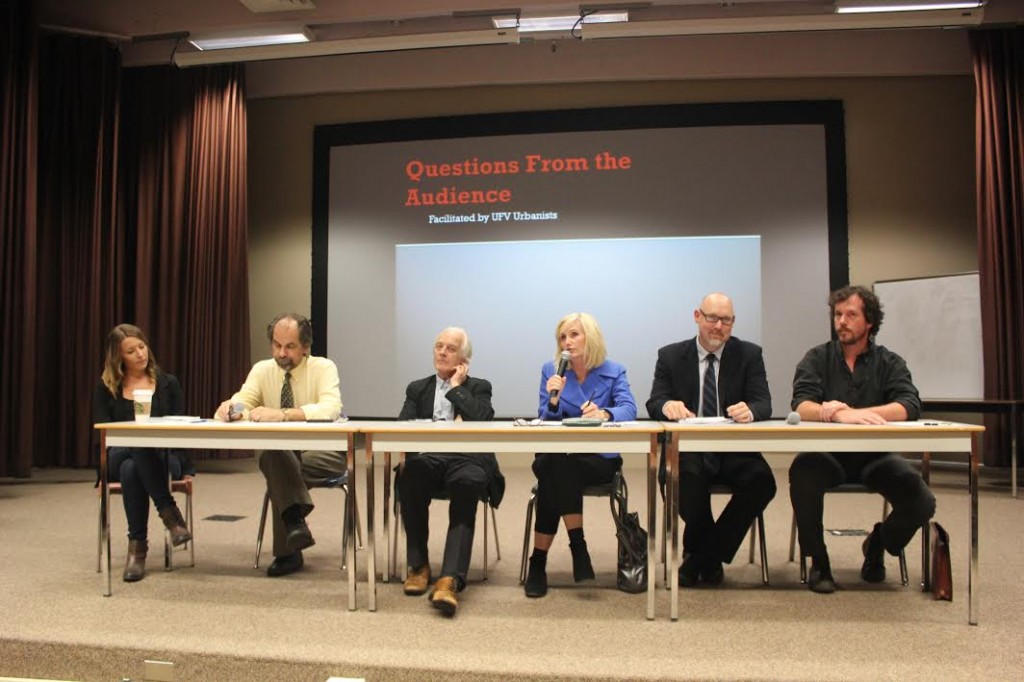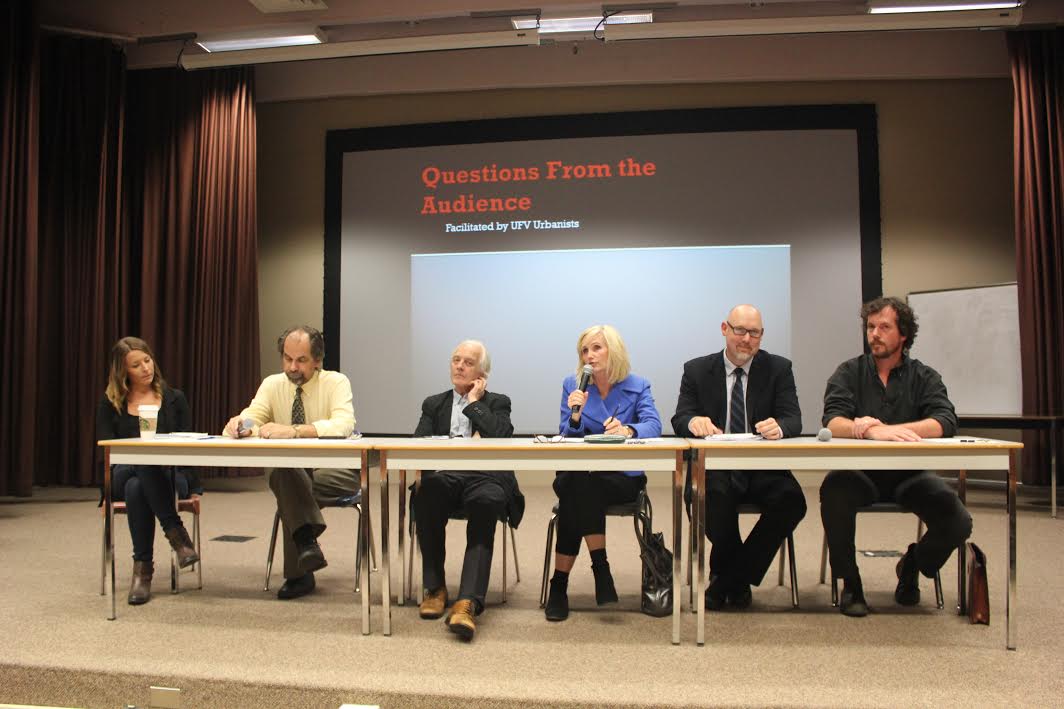By Ashley Hayes (Contributor) – Email
Print Edition: October 1, 2014

A UFV-hosted discussion panel examined the global and local effects of pipeline development in BC, especially concerns regarding aboriginal rights and the environment.
The Monday night panel, which was organized by the geography and the environment department, consisted of community members and UFV faculty. Members of the pipeline industry were invited to speak, but they declined.
The UFV Urbanists group greeted guests at the door and encouraged them to fill out cue cards with questions for the panelists during the question and answer period.
PhD candidate Charis Bersaglio spoke about her work on human rights and the corporate sector. Bersaglio explained that international human rights are often talked about, but aren’t necessarily put into practice with Canadian mining, oil, and gas companies. David Schaepe, director and senior archaeologist of the SRRMC/ Stó:lo Nation, connected this to aboriginal rights — and the infringements that the pipeline is making upon their traditional territory.
Ken Brealey, associate dean of faculty at UFV, called Canada a “resource-capitalist country,” comparing the demand for fossil fuels and growing pipeline industry to the expansion of railroads in the fur trade. Barclay Pitkethly, Director of Regional Programs for the Fraser Valley Regional District (FVRD), noted that Kinder Morgan has been trying to contain their expansion within their right of way, but that they are also targeting agricultural land reserves because they’re “cheap.”
Schaepe similarly noted that Canadians are becoming more dependent on pipelines, and that revenue drives expansion and new development.
However, City of Abbotsford Councillor Patricia Ross gave an environmental perspective, advising that “feeding this addiction” of relying on the oil and natural gas industries for economic growth means ignoring environmental guidelines and regulations — which could change biodiversity and agricultural land.”
The overall consensus was that anyone who could possibly be impacted by the pipeline should be consulted. Ross also pointed out that there was a significant difference between “consultation and significant consultation.”
An audience member asked UFV professor and filmmaker Hugh Brody how society can address the exploitation of the most vulnerable people in society, referring to the aborginal community’s human rights.
“The rights of the vulnerable [should] be defined and respected,” he said.
Brody also noted the environmental impact of projects like pipelines on future generations.
“In 100 years’ time, our descendants, our children and grandchildren, will look back with disbelief with what we are doing. Will look back and think ‘How on earth could they have allowed these developments to take place? How on earth could they have allowed the earth to destroy itself so rapidly and so inescapably?’” he said, ending the discussion.


